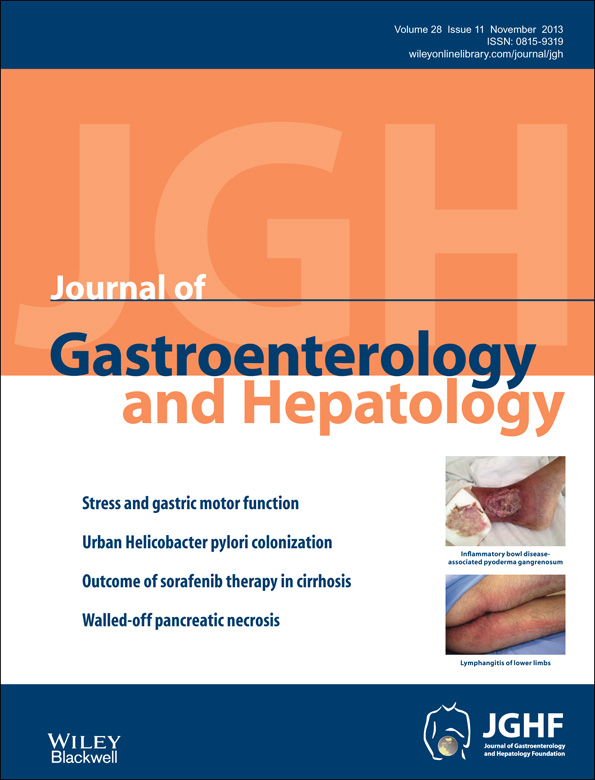Ethnicity is a strong predictor for Helicobacter pylori infection in young women in a multi-ethnic European city
Abstract
Background and Aim
At the same time that Helicobacter pylori prevalence is declining in Western countries, immigrants from developing countries with high H. pylori prevalence have settled in Western urban areas. Actual epidemiological data on H. pylori in a migrant community may help in realizing a more selective approach to assess H. pylori-related diseases. We aimed to define H. pylori prevalence as well as risk groups for H. pylori in a cohort of young women living in a multi-ethnic European city.
Methods
We measured Immunoglobulin G (IgG) anti-H. pylori and CagA-antibodies in serum of pregnant women included in a population-based prospective cohort study, the Generation R study. Information on demographics and socioeconomic status was collected by questionnaires. Chi-square and logistic regression were used.
Results
In total, 3146 (46%) of the 6837 tested women (mean age 29.7 ± 5.3) were H. pylori-positive and 1110 (35%) of them were CagA-positive. The H. pylori prevalence in Dutch women was 24%, which was significantly lower than in non-Dutch women (64%; P < 0.001). In particular, H. pylori positivity was found in 92% of Moroccan (odds ratio 19.2; 95% confidence interval 11.8–32.0), 80% of Cape Verdean (7.6; 5.0–11.5), 81% of Turkish (9.0; 6.7–12.1), 60% of Dutch Antillean (3.3; 2.3–4.7), and 58% of Surinamese women (3.0; 2.3–3.8). Among H. pylori-positive Dutch subjects, 19% were CagA-positive compared with 40% of the non-Dutch subjects (P < 0.001).
Conclusions
Despite a general trend of declining prevalence in Western countries, H. pylori remains highly prevalent in migrant communities, which may constitute target groups for screening and eradication to prevent H. pylori-related diseases.




